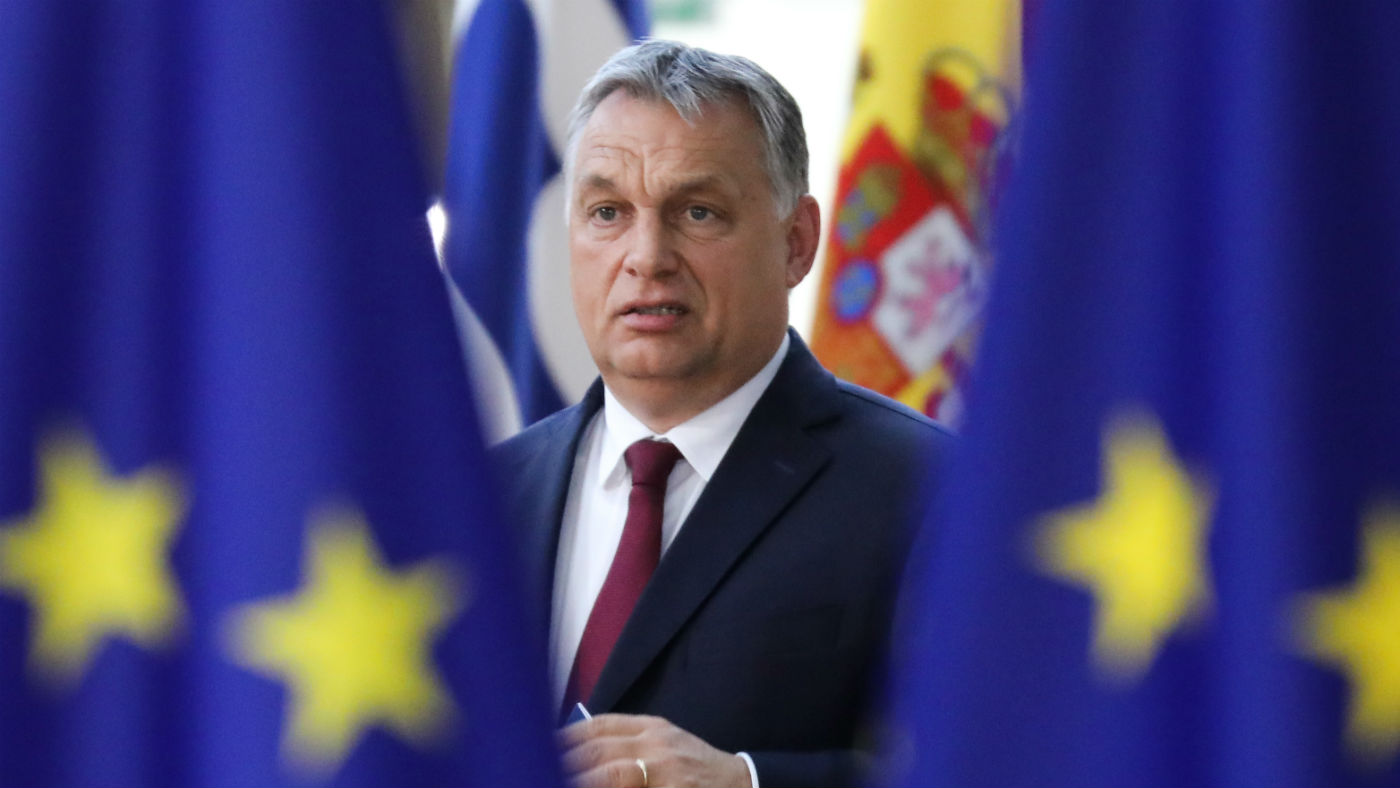EU votes to freeze funds for ‘corrupt’ member states
MEPs back plans aimed at curbing EU states that undermine rule of law

A free daily email with the biggest news stories of the day – and the best features from TheWeek.com
You are now subscribed
Your newsletter sign-up was successful
The European Parliament has backed plans to freeze funding to corrupt EU member states that undermine the rule of law and are found to be eroding democratic values.
“In a move that could raise tensions with the governments in Hungary and Poland, which are accused of weakening judicial independence,” The Guardian says the plan “could lead to a fierce battle between national governments when they discuss the bloc’s €1tn post-Brexit budget later this year”.
MEPs voted by 397 to 158 for the draft law which would give the European Commission, the EU’s executive arm, power to cut funds to states where there are “generalised deficiencies as regards the rule of law”.
The Week
Escape your echo chamber. Get the facts behind the news, plus analysis from multiple perspectives.

Sign up for The Week's Free Newsletters
From our morning news briefing to a weekly Good News Newsletter, get the best of The Week delivered directly to your inbox.
From our morning news briefing to a weekly Good News Newsletter, get the best of The Week delivered directly to your inbox.
Independent experts appointed by national parliaments and the European Parliament would work with the Commission to assess member countries’ compliance.
Poland’s right-wing PiS government has put the country “on a collision course with the EU over a string of controversial judicial reforms”, says Euractiv News.
Meanwhile, Hungary’s government led by Viktor Orban has faced censure from the European Parliament for its increasingly authoritarian policies.
In its highly influential review of global rights, Human Rights Watch praised the EU for its response to Orban’s rule after it voted to launch a process that could end with political sanctions under Article 7 of the EU Treaty.
A free daily email with the biggest news stories of the day – and the best features from TheWeek.com
But while Brussels has pursued existing avenues to tackle corrupt member states, these are often cumbersome and slow.
“Creating a link between the rule of law and EU funds would have a big impact on some national budgets, especially in central and eastern Europe, where European money makes up a large proportion of infrastructure spending,” says the Guardian.
Public funds make up over half of all public investment in Poland and Hungary.
The draft proposal is tied to agreement on the EU’s next €1 trillion budget, which covers funding and expenditure from 2021 to 2028, and must be approved by all EU member states.
Germany, France and other EU countries have pushed for using the bloc's budget to bring wayward countries into line, “but Warsaw and Budapest could each veto steps that would see them denied EU voting rights,” says France 24.
In a sign of the trouble ahead, far-right nationalist leaders in Hungary, Italy and Poland this month proposed setting up a new anti-immigration “axis” to take control of the EU at the upcoming European Parliamentary elections.
-
 The problem with diagnosing profound autism
The problem with diagnosing profound autismThe Explainer Experts are reconsidering the idea of autism as a spectrum, which could impact diagnoses and policy making for the condition
-
 What to know before filing your own taxes for the first time
What to know before filing your own taxes for the first timethe explainer Tackle this financial milestone with confidence
-
 The biggest box office flops of the 21st century
The biggest box office flops of the 21st centuryin depth Unnecessary remakes and turgid, expensive CGI-fests highlight this list of these most notorious box-office losers
-
 Epstein files topple law CEO, roil UK government
Epstein files topple law CEO, roil UK governmentSpeed Read Peter Mandelson, Britain’s former ambassador to the US, is caught up in the scandal
-
 Iran and US prepare to meet after skirmishes
Iran and US prepare to meet after skirmishesSpeed Read The incident comes amid heightened tensions in the Middle East
-
 Grok in the crosshairs as EU launches deepfake porn probe
Grok in the crosshairs as EU launches deepfake porn probeIN THE SPOTLIGHT The European Union has officially begun investigating Elon Musk’s proprietary AI, as regulators zero in on Grok’s porn problem and its impact continent-wide
-
 Israel retrieves final hostage’s body from Gaza
Israel retrieves final hostage’s body from GazaSpeed Read The 24-year-old police officer was killed during the initial Hamas attack
-
 China’s Xi targets top general in growing purge
China’s Xi targets top general in growing purgeSpeed Read Zhang Youxia is being investigated over ‘grave violations’ of the law
-
 Panama and Canada are negotiating over a crucial copper mine
Panama and Canada are negotiating over a crucial copper mineIn the Spotlight Panama is set to make a final decision on the mine this summer
-
 Europe moves troops to Greenland as Trump fixates
Europe moves troops to Greenland as Trump fixatesSpeed Read Foreign ministers of Greenland and Denmark met at the White House yesterday
-
 Why Greenland’s natural resources are nearly impossible to mine
Why Greenland’s natural resources are nearly impossible to mineThe Explainer The country’s natural landscape makes the task extremely difficult